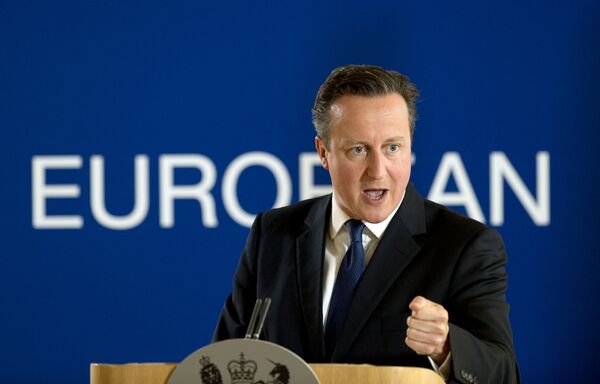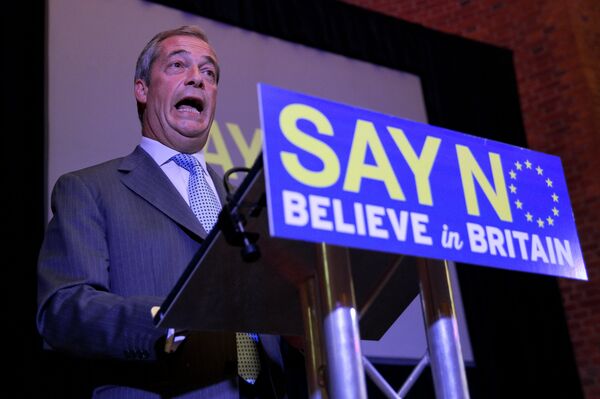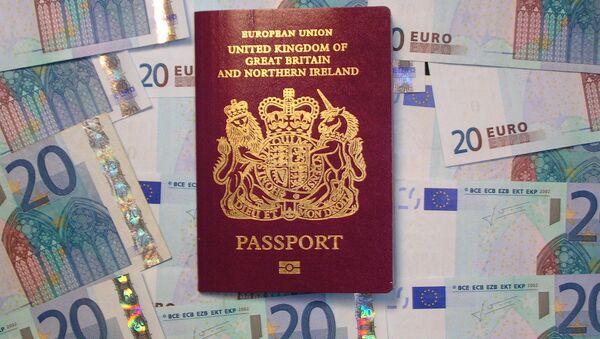Campaigning from political parties and activist groups is heating up ahead of the vote, to be held before the end of 2017, with both sides of the argument putting forward their best points.
The Conservatives
Split.
The stance of David Cameron's Conservative party towards a potential Brexit from the EU perhaps resembles the most confusing of all in British politics, with wide rifts and divides throughout the party.
Officially, cabinet ministers and the PM himself have made it clear that they would prefer to see Britain remain in the bloc, but only once reforms are made to the way things operate in Brussels, particularly regarding EU migrant welfare payments.

Perhaps, best reflecting the Tories' 'official' line of the Brexit debate, Conservative MP Andrew Tyrie has released a report saying that the UK should make reforms to end the EU's "ratchet" effort, arguing the bloc should be more of an open market rather than a social union, with national governments given more power over their affairs.
Despite saying that he'd like to stay in the EU, David Cameron has warned that if negotiations with European leaders over proposed reforms fail, he may campaign to exit the bloc.
Countering Cameron's stance is a significant number of Euroskeptic Conservative backbenchers, who are making the claim that the UK needs to exit the bloc and take back control of its own affairs.
Concerns over the bloc's freedom of movement principle and frustration over following various EU-wide rules has led many to campaign for Britain to leave and become more independent.
There have already been clashes between party members on either side of the debate, with sparks set to fly regardless of whether Cameron can successfully convince EU leaders to agree to his proposals. Watch this space.
Labour
In — by instinct.
New Labour leader Jeremy Corbyn has seemingly thrown a cat amongst the pigeons, and in the process made a few of his colleagues nervous about whether or not he would like the UK to remain in the EU.

After a series of ambiguous media interviews, Corbyn told Britain's Channel 4 that although his position on the matter was "developing", his "instinct" was to campaign to remain in the bloc.
Like Cameron, Corbyn said he wanted to see changes in the way the EU operates, but instead hoped for:
"…a social Europe, a cohesive Europe, a coherent Europe, not a free market Europe."
The Labour leader also said that he didn't want to "give David Cameron a blank cheque" — which would allow him to make reforms that would impact negatively on workers' rights and the environment.
Corbyn's approach differs slightly from the general Labour consensus, with most MPs and party members arguing that Britain should remain within the bloc.
UKIP
Out. Out. Out.
The UK Independence Party (UKIP), led by leader Nigel Farage, have been longstanding critics of the EU and have continuously called for the UK to exit the bloc.
Rather ironically UKIP won last year's European parliament elections in Britain and have maintained their Euroskeptic approach, accusing the bloc of running an inefficient, overly bureaucratic ship.

Immigration concerns are central to UKIP's call for Britain to leave the bloc, which they say will allow the country to control its own borders, while those in favour of a Brexit have criticized the extent to which European-wide institutions and rules have usurped British authorities.
While in favor of pulling out of a political union, UKIP have argued that they would like to keep economic ties with the continent, in the same way that Switzerland and Norway have free trade agreements with the EU.
Liberal-Democrats
In.
Perhaps the UK's most pro-EU party, the Lib-Dems have continuously maintained that Britain would be better off remaining in the EU. While backing European membership, former leader Nick Clegg called for a referendum on the matter to "defeat the Euroskeptics for a generation."
We think 16 & 17 year olds deserve the vote! If you agree, sign our petition: http://t.co/xEzfVPhM1t pic.twitter.com/RU7pWeqabi
— Liberal Democrats (@LibDems) August 29, 2015
The party argues that the EU is key to dealing with global issues, such as European-wide crime and environmental issues, but has also warned against Brussels taking more control from national and local governments.
Greens
In, but not convinced.
The Greens have long-criticized the way in which the EU operates, but argue that there is potential to reform the bloc and transform it into something greater.
The Greens have called for "radical" reforms to be made to the EU, and believe national governments should be given more control over their economies.
The party has accused Eurocrats of being too concerned with the free-trade and market opportunities of Europe, rather than social and environmental issues.
SNP
In Europe, Out of the UK.
The pro-independence Scottish National Party (SNP) has campaigned for the UK to remain in the EU, arguing that engaging with the rest of Europe would be critical in helping Scotland grow and develop.
#SNP appear to be fiercely anti Westminster but are completely fine with Scottish laws and legislation being made in Belgium. #NO2EU #Brexit
— UK against EU (@UKagainstEU) September 13, 2015
The party bucked horns with the Conservatives over the matter of a Brexit, arguing that if Britain as a whole were to leave, Scotland would push to exit the United Kingdom.




